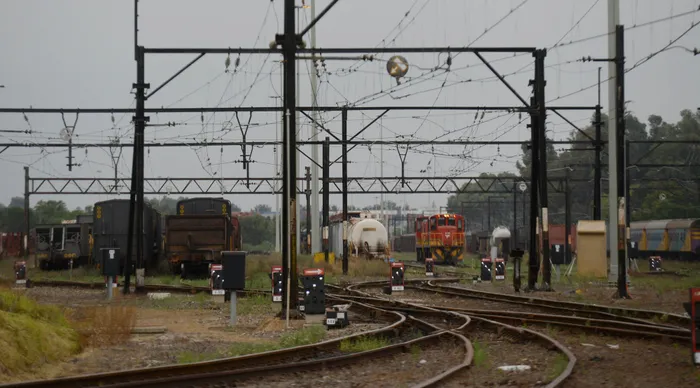Railway crisis impacting roads laden with trucks

Abandoned railway lines in rural areas are having a negative impact on roads as people have now moved to transporting goods via trucks. Picture: Armand Hough/Indpendent Newspapers
Abandoned railway lines in rural areas are having a negative impact on roads as people have now moved to transporting goods via trucks.
This was according to trade union federation Cosatu after a parliamentary response by Minister of Public Enterprises Pravin Gordhan showed a total of 3 636km of freight railway track were no longer in use from April 1994 until the end of November 2023.
The minister also noted that Transnet Freight Rail (TFR) had lost 4 633km of copper cable through theft from the 2019/20 financial year to October 2023.
Cosatu parliamentary co-ordinator Matthew Parks said the “crisis” at Transnet was among key challenges that needed to be solved to grow the economy.
“The government has done well to impose the temporary ban on the export of various scrap metals and to begin efforts to formalise scrap metal dealers to weed out criminal syndicates.
“Security needs to be ramped up along the railway network. This is a huge amount of network to cover so the SAPS will need the support of Transnet, and the private sector and communities.
“Communities need to feel a sense of ownership and benefit to help ensure the exposure of these syndicates. We do need to identify alternatives to copper as well.
“Many railway lines have been abandoned over the years in rural areas. This is having a negative impact on our roads as people move goods to trucks. This needs to be reversed and those lines reopened. This will reduce traffic on roads, damage to the roads and the number of accidents.”
According to Transnet, while there is an economic justification for closing some lines, there is also a recognition that these lines may “play an important role in regional economies or where specific niche markets exist”.
Interim Transnet Rail Infrastructure manager Bessie Mabunda said TFR has accepted a “custodian role for low-demand rail lines, while actively seeking private sector participation through concessioning (branch-line strategy).
“A shift in geographic production and consumption of goods and commodities has occurred over time. As a result, some rural connections no longer justify railways as a bulk mover of goods, which are moved economically by road.
“This shift is in part due to population movements from the rural to urban areas. It is also due to geographic shifts in agricultural production, manufacturing and mining. The other is economically rooted, namely a shift from primary (mining, agriculture, etc) and secondary (manufacturing) economic activities towards a tertiary (service) economy that is much less dependent on the movement of goods, especially bulk goods suitable for rail.”
Mabunda added the deregulation of freight transport since 1989, has meant that rail had to compete directly with road hauliers on what some would consider an uneven basis.
“While rail had to pay directly for its infrastructure, road hauliers were heavily subsidised by operating on roads that are funded from the three tiers of government, fuel taxes and tolls.
“Up until 2023, rail did not receive any subsidies and had to remain self-funded. This shifted TFR’s focus of investment in those rail lines that are heavily utilised such as bulk exports of ores and coal. Some low utilisation lines simply do not justify the cost of keeping them open or expending capital investments.”
In terms of effort to restore the system, Mabunda said TFR had been driving a strategy to seek opportunities for the use of disused and low volume lines, with little success.
“A renewed effort is being made under the new National Rail Policy and associated regulations to find meaningful involvement and simplify the processes whereby private sector participation can be stimulated. The rail transformation currently under way to separate rail infrastructure from Transnet operations and to allow private rail operators to run their own trains on a common rail infrastructure is a step in the right direction.”
Meanwhile she said efforts have also been put in place to bolster internal crime-fighting capacity and to source security service providers with more investigative capability.
Breakthroughs included that criminals are no longer merely charged with theft but are charged for theft of ferrous or non-ferrous metal(s) forming part of essential infrastructure, which carried a heftier sentence, said Mabunda.
Cape Times
Related Topics: